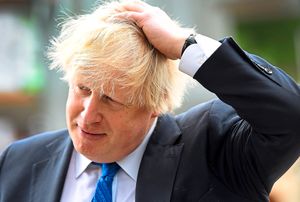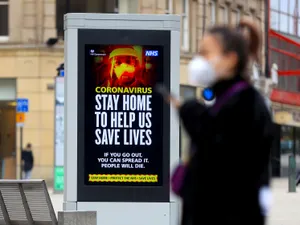Has Boris blown it? asks Nigel Hastilow
Boris has blown it. Our Foreign Secretary, one of those rare politicians we know just by his Christian name, was for many people the front-runner to become the next Prime Minister.

Yet Mr Johnson, the charismatic former Mayor of London, allowed his frustrations over all the Brexit faffing-about to overwhelm his better judgment.
Having issued his 4,000-word manifesto on the subject, he has been subjected to vilification from all and sundry who take it as his latest bid for the highest office. But it is very rarely the politician generally seen as the man most likely to become Prime Minister who makes it in the end – just ask Michael Heseltine, for years the King over the Water who never got beyond deputy PM.
Indeed, the most likely beneficiary of Boris’s latest sally is Jeremy Corbyn. Labour, the extremist ‘nasty party’, is gleefully whipping up as much dissent and unhappiness as it can in the expectation that sometime soon Theresa May’s precarious Government will crumble away like a sandcastle when the tide comes in.
The intricacies of Britain’s tortuous attempts to extricate ourselves from the European Union continue to leave most of us baffled as Cabinet Ministers squabble over what ‘Brexit means Brexit’ actually means. Theresa May’s speech in Florence may have provided some clarity but, while her Cabinet Ministers pay lip-service to the result of the referendum, they seem to disagree on just about every detail.
Boris set out the sort of Brexit most people thought they had voted for – a clean break where we decide for ourselves on issues like immigration and how we spend our own money.
Yet his insistence the notorious £350 million-a-week saving should be devoted to the NHS was nonsense when it was on the side of the Brexit battle-bus last year and it’s still nonsense.
The numbers don’t add up – in truth we may have about £160 million a week to spare – yet Boris’s decision to repeat the claim undermines many of his other arguments and leaves him exposed to attack.
There is a suggestion Mr Johnson won’t remain in the Cabinet much longer. Apart from having to give up his lucrative writing career for his shot at the big time, there’s also the possibility he may feel the need to quit before he is pushed.
Amid the usual Johnsonian waffle, bluster and Latinate circumlocutions, he has talked about when the ‘burden of office’ is lifted from his shoulders even if he has also denied any imminent plan to resign. Yet if the Tories lose Boris from the front line, who is left that could make a credible and likeable rival to a resurgent Labour Party?
Amber, Phil or David (Rudd, Hammond and Davis, by the way – not one with half the popular appeal of Mr Johnson)?
As ex-leader William Hague says, there’s no point arguing over who the next Prime Minister might be because at this rate it will be Jezza.
From the Conservatives’ point of view, Mrs May has to soldier on.
Yet the party seems to be willing to sacrifice just about everything, including its tenuous grip on power, rather than embrace Britain’s destiny outside the EU. Even Lib Dem leader Vince Cable imagines he could soon be Prime Minister. At least his party is honest about its refusal to accept the democratic decision of the people and continues to campaign for Remain.
The Labour leader, who has opposed the EU all his political career, is happy to hedge, trim and equivocate to frustrate the Government, bring about its downfall and win a General Election.
And who is to say Mr Corbyn’s unscrupulous tactics won’t work?
We must remember, though, that confusion and rows about Brexit play into the hands of the EU. Brussels doesn’t want us to leave – not because of some fraternal bond of never-ending unity but because of the money.
Britain pays in about £8.1 billion more than we get back and, once that money goes, rich countries like France and Germany will either have to increase their contributions or poorer ones like Poland and Hungary will have to make do with less. That’s why they don’t want us to leave – and the EU is so insecure it wants to cause as much damage as possible to Britain to deter other countries from quitting as well.
Britain’s political instability plays straight into Brussels’ hands. The harder it gets to leave, the better from the EU’s point of view.
There is a simple solution, as set out by Boris Johnson. We should simply walk away, paying off our modest legal obligations such as civil servants’ pension liabilities.
There’s no reason why our departure should create the chaos its opponents predict and the EU wants. Trade will continue because we have a £60bn-worth trade deficit with the rest of the EU.
Boris could cut through all the posturing, politicking and procrastination to deliver a straightforward Brexit. It’s doubtful if he’ll get the chance now.





